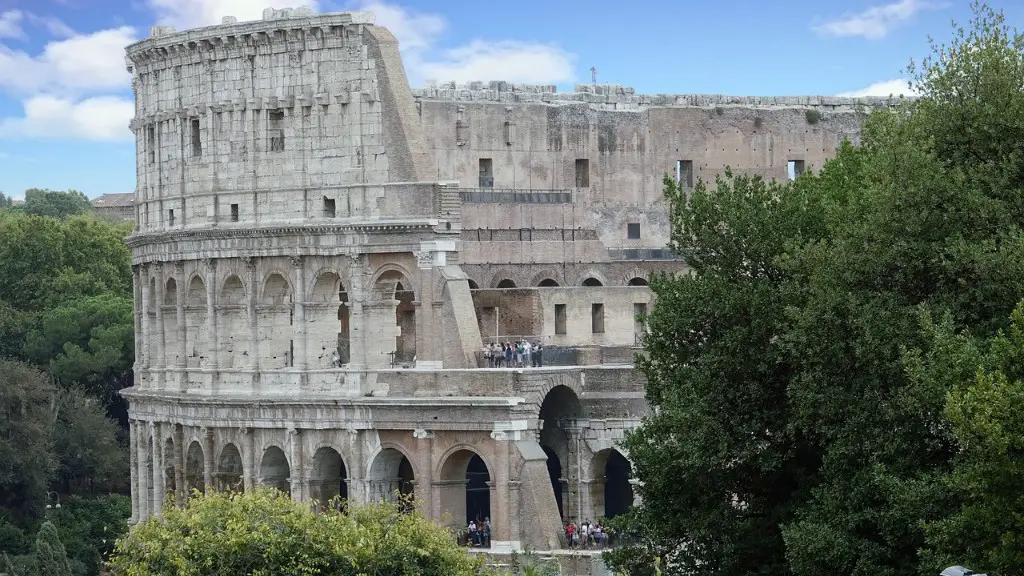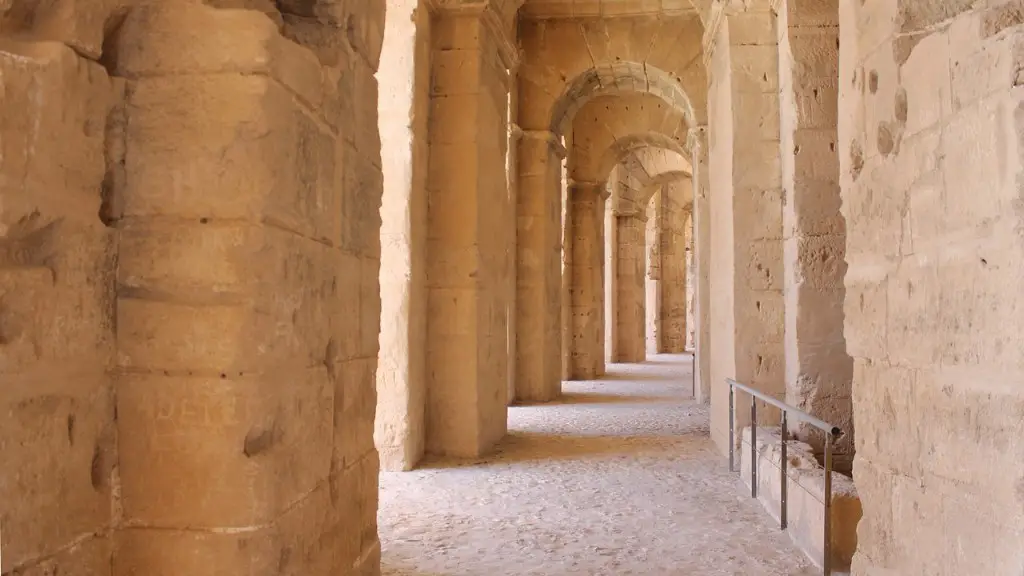Social & Political Factors
Ancient Rome was an incredible and powerful civilization in its time. The Roman Empire rose to greatness due to its well-oiled system of government, organized military, and robust economy. Unfortunately, the same factors that had once helped it become a superpower of the ancient world also began to slowly tear it apart. Many argue that the fall of the Roman Empire began with the death of its last great emperor, Constantine the Great, in 337 CE.
Despite the argument it is generally accepted that the ancient Roman Empire began to fall apart in the 5th century CE. This was due to a variety of social, political and economic factors. One of the biggest factors in the decline of the Roman Empire was the increasing tension between Rome and its domains. Throughout the Empire, local rulers had grown powerful and rivalries had formed. This weakened the political unity of the Empire, leading to instability and unrest.
In addition to the political turmoil, Rome was also facing an economic crisis. The imperial coffers were running dry and the currency was losing value while taxes and other levies kept increasing. This led to widespread discontentment and a rise in power of local factions. This, in turn, contributed to the rapid decline of the Roman Empire.
The Roman Empire was also suffering due to its own success. After centuries of conquest, its empire was too large to easily administrate. The provinces were now isolated and largely independent, making it difficult for Rome to maintain control. This led to a more decentralized governance system, which was not as effective as the centralized version of the past.
The Roman Empire was then dealt a deadly blow when it was sacked by Germanic and other barbarian tribes. This finally resulted in the complete fall of the Roman Empire in 476 CE.
Cultural Factors
In addition to social and political factors, cultural factors also contributed to the decline of Ancient Rome. As the Roman Empire expanded, it incorporated many different cultures and religions into its fold. This led to a clash of cultures as previously isolated people were brought together under a single rule. This greatly weakened the idea of a unified Roman identity, which had been so important in the past.
The intellectual life of the Romans also began to decline as they began to lose interest in the sciences and humanities. This was in part due to the domination of the religious ideas of Christianity. Latin, the language of the Roman Empire, also began to decline and eventually fell out of use.
In addition to this, the Roman economy also suffered due to its reliance on slave labor. This began to decline as Rome became more and more decentralized, leading to less efficient ways of producing things. This decrease in productivity eventually led to the decline of the Roman Empire.
Military And International Factors
The Roman Empire was also weakened by external factors such as military decline and foreign invasions. Rome had enjoyed centuries of military dominance, but by the 4th and 5th centuries, it was no longer able to defend its vast territories. This left the provinces vulnerable to attack from rival nations.
The Roman Empire was also unable to stem the tide of foreign invaders into its territory. This was due to its weakened military and an inability to coordinate defense strategies across its large empire. Invaders such as the Goths, Visigoths, and Vandals were able to easily overrun Rome, further weakening its grip on power.
The Roman Empire was also weakened by its increasing reliance on foreign mercenaries and allies. This had a major impact on its ability to defend its borders. As outsiders were given more and more control, the loyalty of the Roman army was undermined. This contributed to the decline of the Roman Empire.
Economic Decadence
The economy of the Roman Empire was based on the exploitation of its provinces. This led to an increasing debt crisis, as the central government was unable to provide the necessary funds for public infrastructure and other public services. This, in turn, led to the economic decline of the Empire.
As the economy worsened, the rich and powerful began to amass more and more wealth, while the rest of the population suffered. This created an even bigger gap between the rich and the poor and further weakened the economy of the Empire.
In addition to this, the monetary system of Ancient Rome was not as sophisticated as that of other European nations. Due to the lack of a unified currency and reliable banking system, it was hard to track and manage finances. This led to a decrease in taxation revenue and weakened the overall economy of the Empire.
Environmental Factors
Environmental factors were likely to have had a role in the fall of the Roman Empire. Droughts, floods, and extreme weather made it difficult for the rural population to make a living. This led to a decrease in the population of rural areas, as people moved to cities in search of work. This further weakened the agricultural sector and contributed to the decline of the Roman Empire.
In addition, the destruction of forests to create farmland and mining for valuable metals and minerals also had an environmental impact. This disrupted the balance of nature and disrupted the food supply of the people. This further contributed to the decline of the Roman Empire.
Conclusion Of The Fall
The fall of the Roman Empire can be attributed to a combination of factors, including political, social, military and international, cultural and environmental factors. All of these combined to create a situation of instability and decline, leading to the eventual collapse of the Empire in 476 CE.

